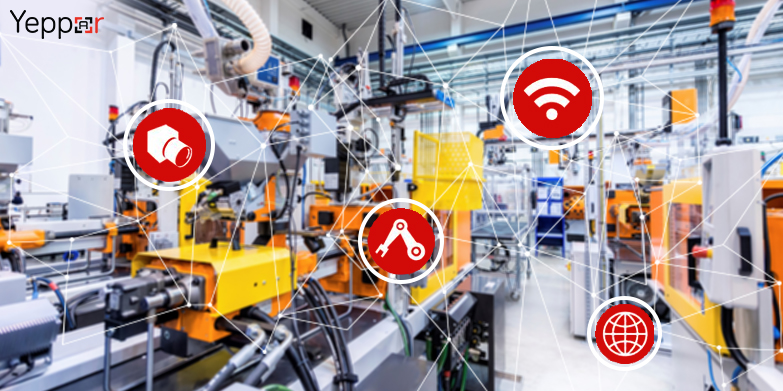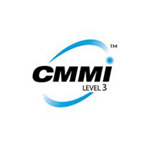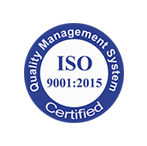No matter what industry you are in, there is one term that is constantly pulling your attention that is Industry 4.0. But what does it mean? What are its use cases? Where can we apply this concept? In order to understand the answers to all these questions, let us first learn about what really is Industry 4.0.

What is Industry 4.0?
Industry 4.0, also known as the fourth industrial revolution, focuses on the traditional manufacturing of products and industrial platforms with the use of technology. It is also referred as the Industrial Internet of Things (IIoT) or Smart Manufacturing, where physical production techniques and operations coexist with automation, machine learning, and big data technology.
The need of real–time insights about various production units, processes, and human resource is indispensable for any business. Industry 4.0 revolutionises the entire business operations with smart technology and tools ensuing in uplifting the manufacturing goals.
Basic Terminology in Industry 4.0
Now that we are aware of what industry 4.0 is, before moving forward to its use cases and benefits, let us first get familiar with some terms surrounding Industry 4.0.
- Computer Vision: Computer Vision in the smart manufacturing can be referred as the eyes of Industry 4.0. As inspecting each and every heavy-duty machine or equipment in an industry cannot be done manually. Therefore, product inspection and quality control, barcode scanning, etc., requires computer vision in the industries.
- Automation: The use of digital systems in controlling various machines and equipment in an industry is called Automation. Industrial manufacturing companies are turning towards automation because it reduces human errors and human fatigue while increasing the efficiency and productivity. Thus making it an integral part of Industry 4.0.
- Internet of Things: IOT is the inter-connectivity of physical devices that consist of sensors/software which allows them to exchange information among them. The Internet of Things (IOT) can be used in industries for machine maintenance. This approach in the industries is helpful when it comes to deducting costs. Inter-connected machines via a network will be helpful in machine data analysis and day to day activities.
- Training (AR, VR, and MR): AR, VR, and MR applications can be utilised in various industries in the designing process, inventory management, and most importantly preventing accidents. Workers can be trained to operate machines with virtual reality properly.
- Enterprise Resource Planning system is an important aspect of Industry 4.0 as it provides real time data analysis which is compulsory for strategic decision making and rapidly changing market conditions.
- Digital Marketing establishes and spreads brand awareness rapidly. Integrating AR and VR as a digital marketing aspect will easily demonstrate your products. It helps in building and improving customer loyalty.
- Troubleshooting/ Maintenance: Troubleshooting or maintenance techniques are necessary to be known to the workers operating the machines. Industries can provide troubleshooting modules in the form of Augmented Reality projects.
- Remote Assistance is required in every industry for proper functioning of the machines. With, Augmented Reality Remote Assistance, the experts can guide the worker to perform set of operations to make the machine work.
- Industries using VR or AR Plant Walkthrough to explain about their manufacturing processes, the production units, machinery, etc. more satisfactorily than others. Highlighting your equipment and even the minute details of your operations can be easier with VR and AR.
Industry 4.0 Use Cases
There are many ways in which businesses can achieve their desired manufacturing efficiencies by connected machines and equipment. Be it monitoring of machines, reducing human error in the production techniques through automation, machine monitoring and reduction in costs, there are many uses cases of smart manufacturing. This resource will present to you the in-depth Industry 4.0 Use Cases.
- Real-Time Asset Tracking: Industry 4.0 provides efficient asset management solutions to manufacturers through asset tracking at each stage of the production. Factories incorporated with the Internet of Things (IoT) can easily provide better visibility of various assets to the operators.
- Enhanced Supply Chain: With Automation, ERP, IoT, and other tools, Industry 4.0 improves the supply chain through real-time data visibility and the interconnectivity of machines. Smart manufacturing makes the production process cheaper and efficient which results as an advantage over the competitors.
- Machine Maintenance: Potential problems in any business operations can arise at any point. Industry 4.0 provides consistent production efficiency by predicting when potential problems would arise and how to prevent them. IoT makes sure machine maintenance becomes a routine process. Preventive measures regarding machine maintenance can be taken effectively with the input provided by interconnected automated systems.
Benefits of Industry 4.0
Industry 4.0 benefits a business by improving efficiency in production, increasing the profits, and providing better adaptability and agility. Industry 4.0 also provides benefits of the technology such as machine interconnectivity (machine-to-machine communication), enhanced automation with latest technology, and decision making. Have a look at some further main benefits of the Industry 4.0 Use Cases.
- Cost Reduction: Investment in Industry 4.0 comes with a reduction in various manufacturing costs. After incorporating various Industry 4.0 Technologies such as automation, internet of things, a system of integration, etc. a business can save more consistently. Improvements in Production: Industry 4.0 boosts the manufacturing productivity of your business. Application of modernised automated machines and equipment produces more in less time ensuing enhanced production efficiency.
- Depletion in Machine Downtime: With predictive maintenance through Industry 4.0, machine downtime can be reduced by identifying equipment failure in advance. Machine monitoring helps in inspecting the repetitive reasons of an equipment failure, and therefore, provides preventive measures to avoid such cases.
Internet of Things (IOT), Making Humans Lives Easier & Convenient
Why Does Industry 4.0 Matter To You?
Industry 4.0 merely doesn’t mean just investing in the latest technology for enhancing your production, but it’s moreover revolutionising your manufacturing operations to achieve desired results. But how do you know whether or not you should invest in Industry 4.0. Well, if the below-given points look familiar to you, we would advise you to go for Industry 4.0.
- You want to improve production efficiency with reduced human error and human fatigue.
- You need data visibility and enhanced real-time analysis of machines.
- You want to reduce your manufacturing costs.
- You want to improve your production quality and reduce wastage.
- You have a lot of tech-savvy competitors.
- You need preventive measures for potential problems arising in your business.
- You want customer loyalty by improving customer experience.
- You need an enhanced ERP System (Enterprise Resource Planning).
- You need to manage the inventory effectively with enhanced data analysis.
- You want to modernise your business system












